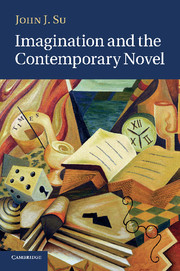Book contents
- Frontmatter
- Contents
- Preface and acknowledgments
- 1 Introduction: globalization, imagination, and the novel
- 2 Aesthetic revolutions: white South African writing and the State of Emergency
- 3 The pastoral and the postmodern
- 4 Hybridity, enterprise culture, and the fiction of multicultural Britain
- 5 Ghosts of essentialism: racial memory as epistemological claim
- 6 Amitav Ghosh and the aesthetic turn in postcolonial studies
- Conclusion: imagining together?
- Notes
- Bibliography
- Index
5 - Ghosts of essentialism: racial memory as epistemological claim
Published online by Cambridge University Press: 01 June 2011
- Frontmatter
- Contents
- Preface and acknowledgments
- 1 Introduction: globalization, imagination, and the novel
- 2 Aesthetic revolutions: white South African writing and the State of Emergency
- 3 The pastoral and the postmodern
- 4 Hybridity, enterprise culture, and the fiction of multicultural Britain
- 5 Ghosts of essentialism: racial memory as epistemological claim
- 6 Amitav Ghosh and the aesthetic turn in postcolonial studies
- Conclusion: imagining together?
- Notes
- Bibliography
- Index
Summary
Whereas hybridity has been the source of heated debate, essentialism has not: the theoretical strawman for more than thirty years, it has been repudiated by scholars of every theoretical position. The oddity here is that essentialism, as it is typically defined, presents such an absurdly untenable position that is hard to imagine who its advocates currently are and why it would even merit serious scholarly rebuttals. Nor are the critiques of essentialism helpful in this regard: rarely do they identify contemporary proponents of the idea that individuals within a particular ethnic, gender, or religious group possess from birth a common “essence” that is homogeneous and unchanging. Yet the enduring hold essentialism maintains in the humanities is apparent in the fact that scholars continue to rehabilitate qualified versions of the idea: “nominal essences,” “nonessentialist essentialism,” “fluid essences,” and, perhaps most famously, “strategic essentialism.” Calling for academics to take “the risk of essence,” Stephen Heath and Gayatri Spivak asserted in the late 1970s and 1980s that self-conscious forms of essentialism could create political solidarities among otherwise diverse groups of individuals that must not be neglected despite the risk of lending credence to regressive beliefs about essence. Proponents of strategic essentialism have been motivated not only by a pragmatic sense that progressive minority political movements need to employ all the tools at their disposal but also by a nagging perception that essence is unavoidable. Spivak speaks of the “unavoidable usefulness” of essence despite the fact that it is “very dangerous.
- Type
- Chapter
- Information
- Imagination and the Contemporary Novel , pp. 107 - 125Publisher: Cambridge University PressPrint publication year: 2011



